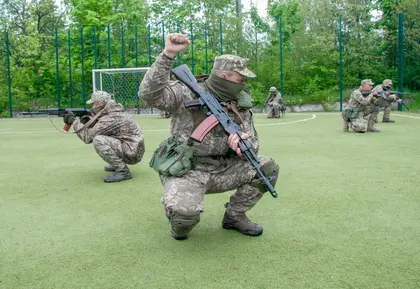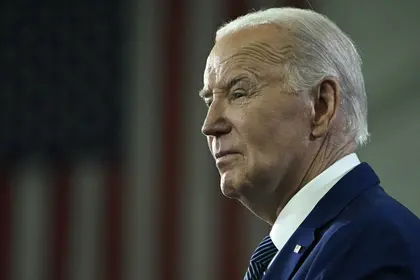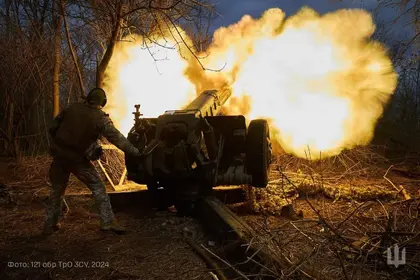The latest scoop by TIME magazine has shed light on the shadowy world of America’s private armies, with a trail leading back to Ukraine.
In a piece by Simon Schuster published on July 7, the publication revealed that none other than Erik Prince, the founder of notorious private military company Blackwater (now known as Academi), was seriously interested in recruiting Ukrainian combat veterans of Donbas as his new soldiers.
According to the magazine, Prince, who was close with the administration of former U. S. President Donald Trump, had made a range of questionable business offers to Ukraine’s leadership.
These envisaged Prince building a munitions production line in Ukraine and getting involved in an “aviation defense consortium” of Ukrainian enterprises, particularly Motor Sich, one of the world’s top aircraft engine manufacturers.
According to the story, Ukrainian authorities eventually backed down from the offer.
But the revelation spotlights the issue of private armies in Ukraine.
Russia’s war in Donbas has produced tens of thousands of young, highly-skilled and educated combat veterans. Many of them want to make good money for what they do best — but not for the military. Naturally, many become sought-after by various armed groups around the world.
Meanwhile, Ukraine lacks the laws to govern the exploding industry. Experts say this breeds shadowy practices and rogue mercenary bands.
Booming business
Legal security firms are not about amassing hired guns to fight wars. In most Western countries, the activities of private military companies (PMCs) are strictly regulated — they are used for training, security and logistics support.
Still, PMCs represent one of the world’s most booming industries, worth $100 billion in 2003 and $211 billion in 2019. ReportLinker, a U.S. analytics firm, expects it to reach $420 billion by 2029.
The business has a dark side, illustrated by Blackwater, which gained notoriety for killing 17 and injuring 20 civilians in a shooting spree in Baghdad in 2007.
According to TIME, Prince came to Kyiv in late February 2020 to meet Igor Novikov, then an adviser to President Volodymyr Zelensky.
Prince reportedly proposed to create a new private military company that would hire Donbas veterans. Ukraine has nearly 400,000 people who acquired veteran status in Donbas, although many of them got it for non-combat missions in the rear.
Many combat-hardened vets have already worked for numerous Western security contractors, says Taras Chmut, a retired marine and the chief editor with the Ukrainian Military Portal news website.
“The market is growing,” he says. “And Western investors are interested, and it is probably promising to them. Our guys want less money than Poles, Czechs, or other European contractors. So it may be an advantage in terms of business.”
Many also ended up on the dark side.
According to the Security Service of Ukraine (SBU), at least 125 Ukrainian nationals were recruited to the Wagner Group, the notorious Russian mercenary army linked to the Kremlin and involved in conflicts in Syria, Libya, the Central African Republic and elsewhere.
No legislation
Curiously, Ukraine’s parliament registered a bill called “On military consulting business” at the same time when Prince reportedly started sniffing around Ukraine, in February 2020.
The draft law, submitted by Olha Vasylevska-Smagluyk, a lawmaker with Zelensky’s ruling 248-member Servant of the People faction, intended to legalize private security contractors.
According to the bill, such companies would be subject to strong oversight and banned from direct participation in any fighting.
Their activities would only be allowed outside Ukraine’s territory and they would be limited to providing security, consulting or training services to foreign governments and companies.
The bill triggered strong controversy. Many feared it would legalize private armies for oligarchs. The lawmaker who submitted it is an associate of one of them, oligarch Ihor Kolomoisky.
Ukraine’s law enforcement and the SBU fiercely opposed the idea. A year and a half after its inception, the bill is still gathering dust in the Rada committees, with no chance of advancing.
But in practice, PMCs have already been active on Ukrainian soil, either registered overseas or disguised as simple security firms.
In late March, the SBU busted the premises of the DBC Corp., a U.S.-registered security contractor founded by former soldiers the paramilitary Donbas Battalion. According to the SBU, the group had stockpiles of military-grade weapons and was training its personnel for combat at its bases near Kyiv.
Numerous media reports tied the group to Kolomoisky, for whom the DBC reportedly fought in corporate wars. The group’s founder, former lawmaker Simeon Semenchenko strongly denied participating in mercenary activities.
Prince’s reported overture is a reminder that Ukraine still needs to properly regulate this industry before it’s too late.
“This phenomenon does exist,” said Chmut. “And it needs to be ingrained in the law and common sense. Guys should not have to work in semi-legal companies, which involves personal risks and no guarantees of decent pay rates and working conditions, social security, and many other things down to body recovery.”
“There’s a thin line between an effective business, the Ukrainian projection of power and interests around the world, and the creation of officially trained and armed private armies in the hands of oligarchs who can deploy them in the country,” he added.
You can also highlight the text and press Ctrl + Enter







Comments (0)